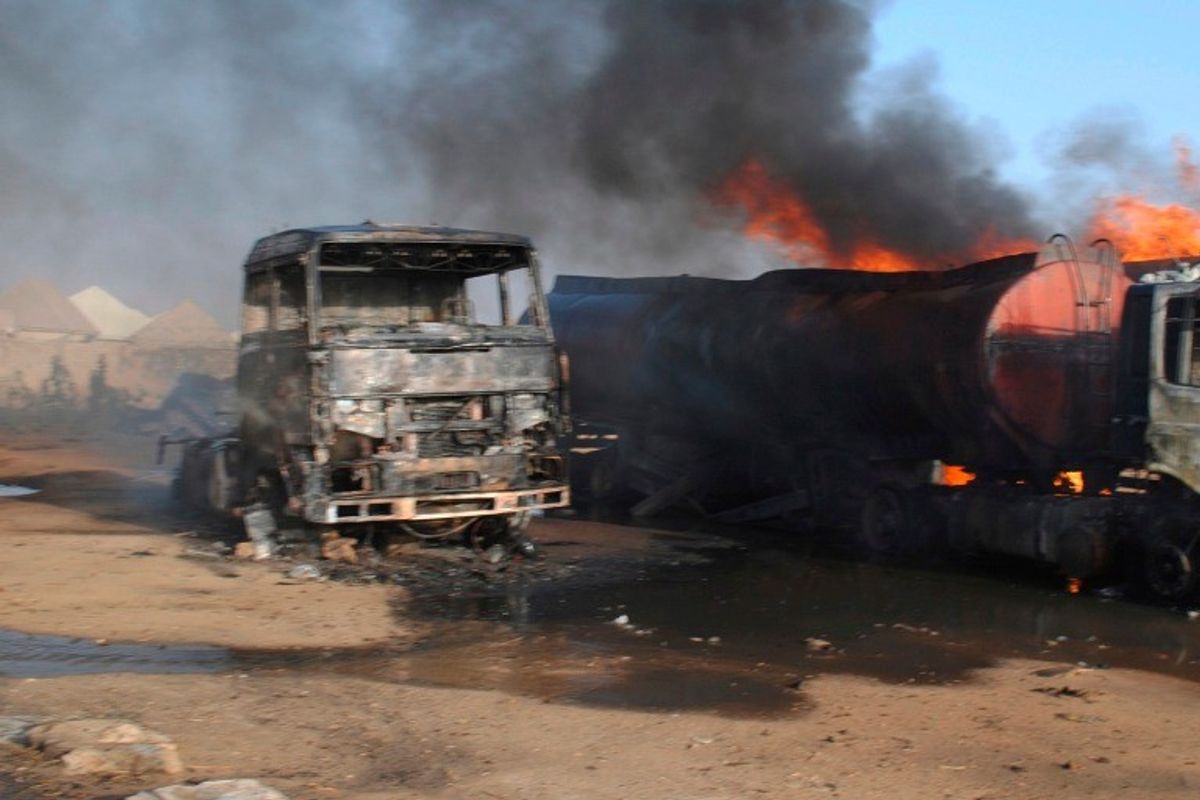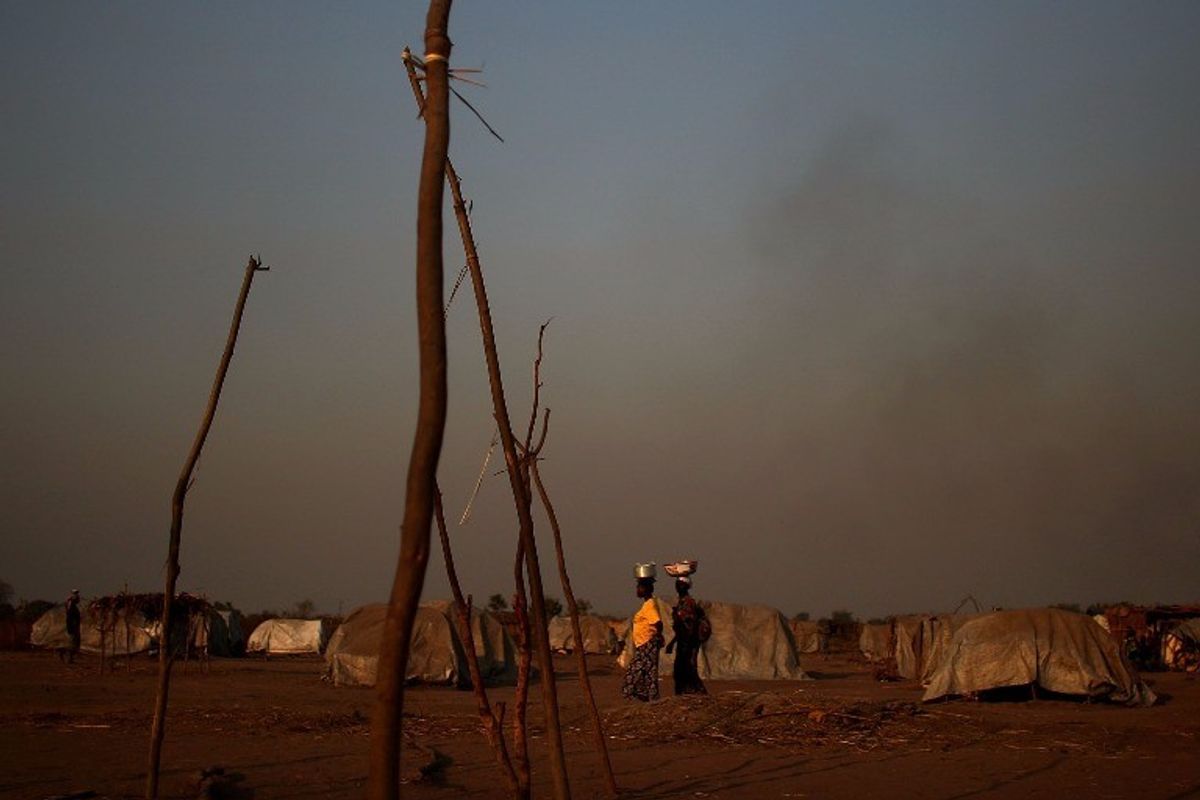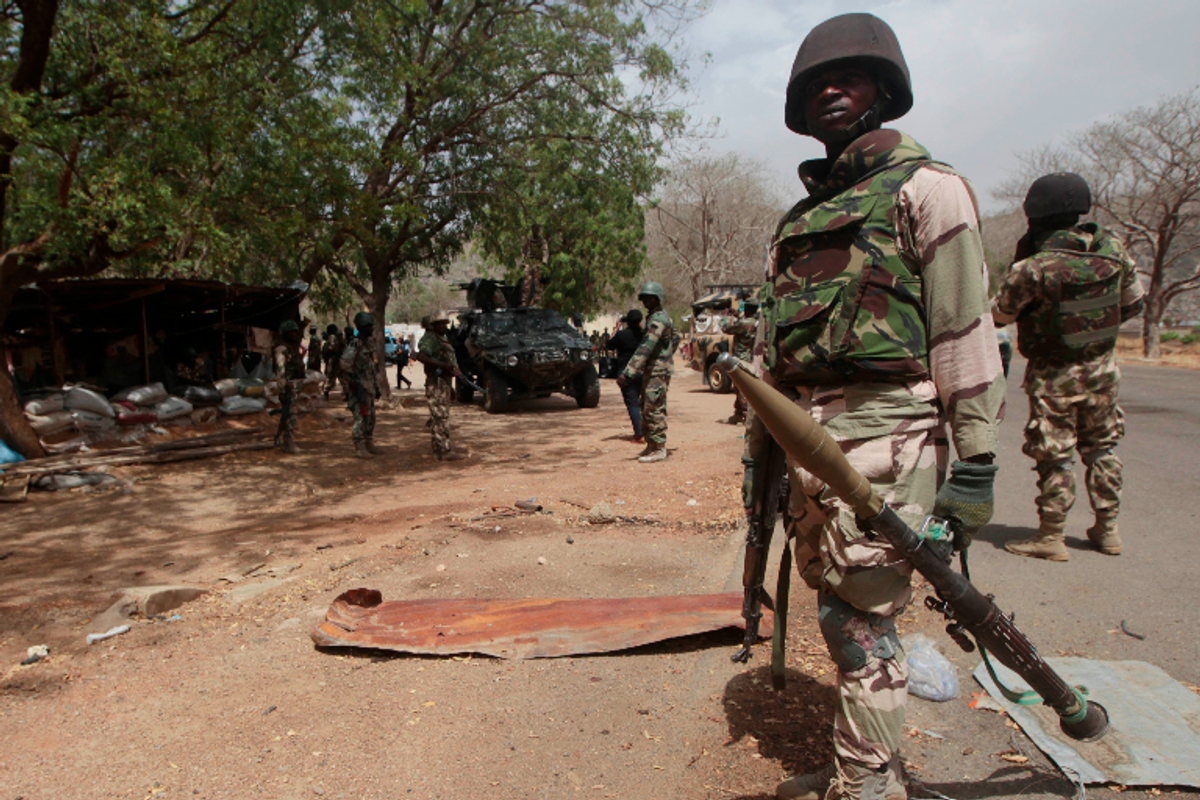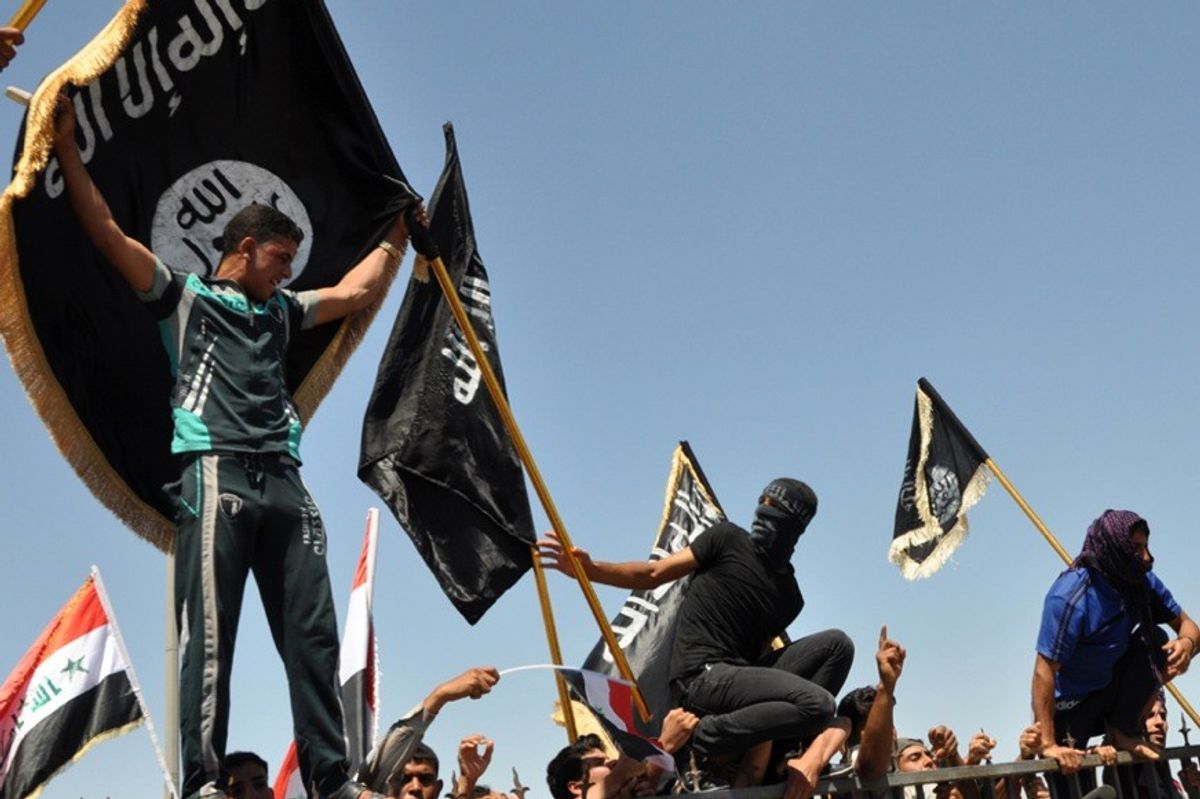Despite sustained efforts by the Nigerian military to root out Boko Haram from its stronghold in northeastern Nigeria, the terrorist organization continues to plague the country and the Lake Chad basin area in West Africa.
“Boko Haram has killed more than 20,000 people, displaced more than two million, and flung some seven million Nigerians into hunger, thirst, and desperate need,” remarked U.S. Secretary of State John Kerry during a speech delivered at the Sultan’s Palace in Sokoto, Nigeria, on Tuesday.
In 2015, the Global Terrorism Index labeled Boko Haram the world’s deadliest terrorist organization, and the group remains a grave threat to regional security.
Founded in 2002 by the radical Islamic cleric Mohammed Yusuf, Boko Haram, whose name translates to “Western education is a sin,” advocates the institution of Islamic Sharia law in the predominantly Muslim northern region of Nigeria. It burst onto the scene in 2009 when some of its members staged an uprising and clashed with Nigerian security forces in Borno, a state in Nigeria’s northeast. The incident resulted in more than 1,000 deaths.
In subsequent years, Boko Haram’s lethality only increased, as the group conducted several major operations across Nigeria, including the 2011 Damaturu attacks, the July 2013 Yobe school shooting, and the 2014 Gamburu Ngala attack. Boko’s most deadly campaign, the Baga massacre, occurred in January 2015 and left as many as 2,000 dead.
But perhaps the group’s most notorious act occurred in April 2014 with the abduction of 276 Chibok schoolgirls. To date, 219 are still being held captive by the terrorist group. Since the kidnapping, Boko Haram has released three videos of the schoolgirls shown wearing Islamic religious garb and demanded the freedom of several captured Boko militants in exchange for the girls. The most recent video, released on August 15, appears to show the bodies of some of the kidnapped schoolgirls who Boko militants claim had been killed by airstrikes conducted by the Nigerian military.
In March 2015, Boko Haram pledged allegiance to the Islamic State (ISIS), becoming the most infamous terrorist group to join the ISIS network. To symbolize its connection to ISIS, Boko Haram also took on the name Islamic State’s West Africa Province (ISWAP) and directed an increasing number of attacks in countries bordering Nigeria — Cameroon, Chad, and Niger.
“Boko Haram’s sub-regional ambitions intensified after the pledge to ISIS, with their forces embarking on cross-border raids in neighboring countries,” writes Cipher Brief expert Dr. Raymond Gilpin, Dean of the Africa Strategic Center at National Defense University. “This spurred Cameroon, Chad, and Niger to join forces with their Nigerian counterparts to confront Boko Haram, within the context of an African Union-sanctioned Multi National Joint Task Force (MNJTF).”
Since Nigerian President Muhammadu Buhari emerged victorious in the country’s May 2015 election, the Nigerian military has prioritized defeating Boko Haram. Under Buhari’s leadership, and with coordinated assistance from the MNJTF coalition, Boko Haram has suffered its most significant setbacks to date.
“There’s no question in recent months that important progress has been made, and particularly here in Nigeria,” acknowledged Secretary Kerry on Tuesday. “Over the last six months, the Nigerian army has rescued thousands of civilian hostages. Hundreds of Boko Haram fighters surrendered to Nigerian forces. In July, Nigerian troops captured 16 of the group’s leaders who admitted that they were running out of food, that their fighters were living off roots and unripe fruit.”
Beyond suffering military setbacks, divisions have emerged within Boko Haram’s top ranks. Earlier this month, ISIS announced that Abu Musab al-Barnawi, the son of Boko Haram’s founder, would replace Abubakur Shekau as Boko Haram’s leader. Shekau had led the organization since 2010, but his willingness to target fellow Muslims seems to have alienated many Boko supporters, spurring the move by ISIS. Following Barnawi’s appointment, Shekau recorded an audio statement claiming he is “still around,” leading many to speculate that a major split had occurred.
Although the change in Boko Haram’s leadership is bound to have an effect, the overall impact may very well be minimal. “Despite the rivalries, the goals of both camps remain the same: the destruction of the secular Nigerian state, the end of Western influence, the creation of a ‘pure’ Islamic state, and ‘justice for the poor’ through rigid implementation of their common interpretation of Islamic law, or Sharia,” says John Campbell, Cipher Brief expert and former U.S. Ambassador to Nigeria.
On Tuesday, three weeks after the ISIS announcement and just one day prior to the arrival of Secretary Kerry in Nigeria, the Nigerian military released a statement saying that an airstrike had severely or even fatally wounded Shekau, although the claim has yet to be substantiated. Shekau has been reported dead on at least five previous occasions, leading many to remain skeptical of the recent announcement. Nonetheless, Shekau’s demise would represent another significant blow to Boko Haram’s capabilities and structure.
Yet, even if Boko Haram is eventually degraded, the group could very well regenerate in one form or another, barring any substantial reforms to Nigeria’s political and economic systems.
“That is likely to be the ongoing pattern, absent profound changes in Nigeria’s political economy. Even now, there are other non-violent movements that reject the state. Security service abuse could transform them into violent movements, as happened with Boko Haram,” says Campbell.
“We also know that beating Boko Haram on the battlefield is only the beginning of what we need to do,” stated Kerry. “To win the struggle for the future, nations need to do more than just denounce bankrupt, dead-end ideologies that the terrorists support. They also have to offer their citizens an alternative that is better, that offers hope, that actually delivers on its promises,” he continued.
And in Nigeria, a country that has been devastated by atrocities committed by Boko Haram for the better part of the last decade, such deliverance could not come soon enough.
Bennett Seftel is the Deputy Director of Editorial at The Cipher Brief.











